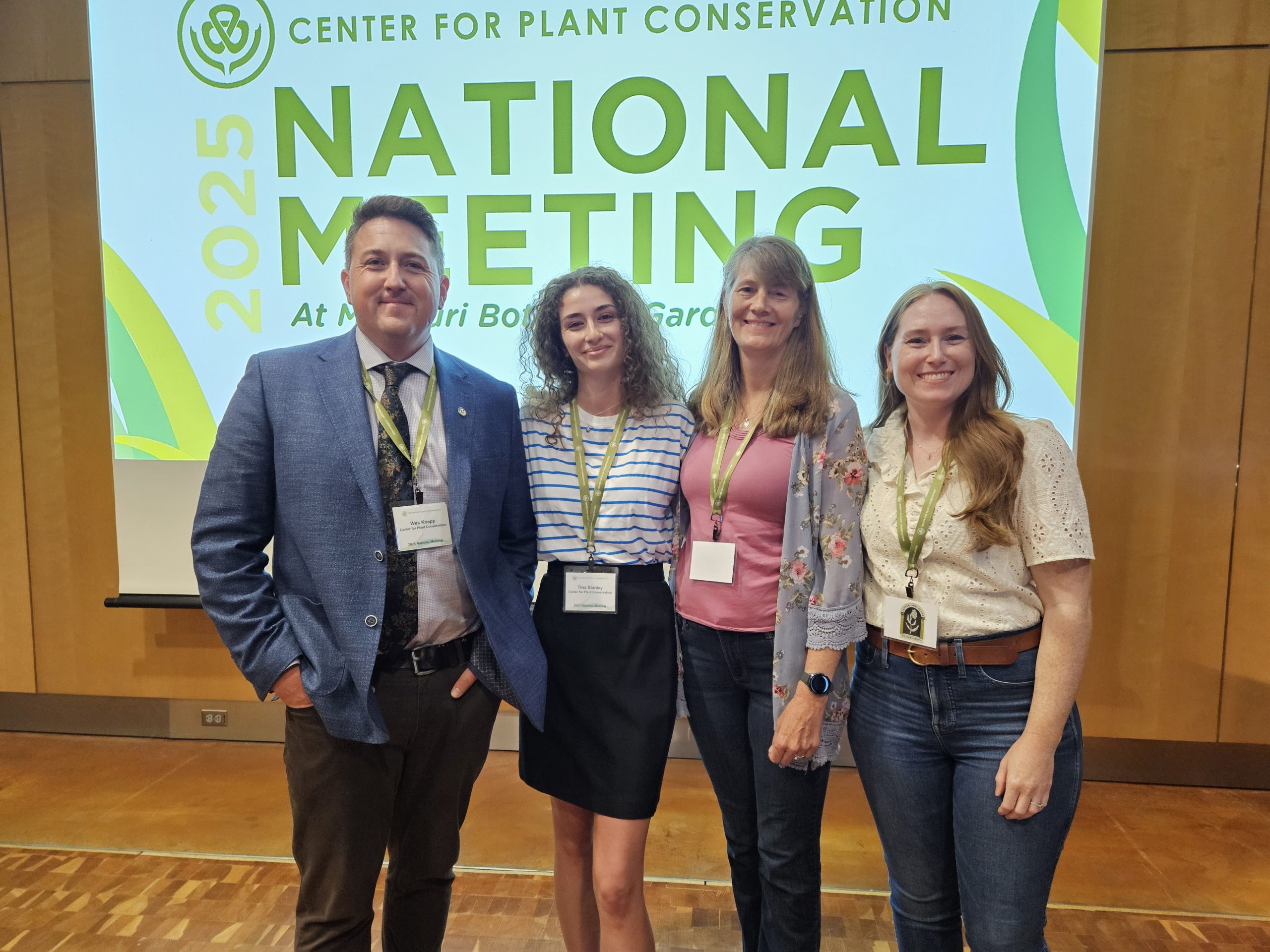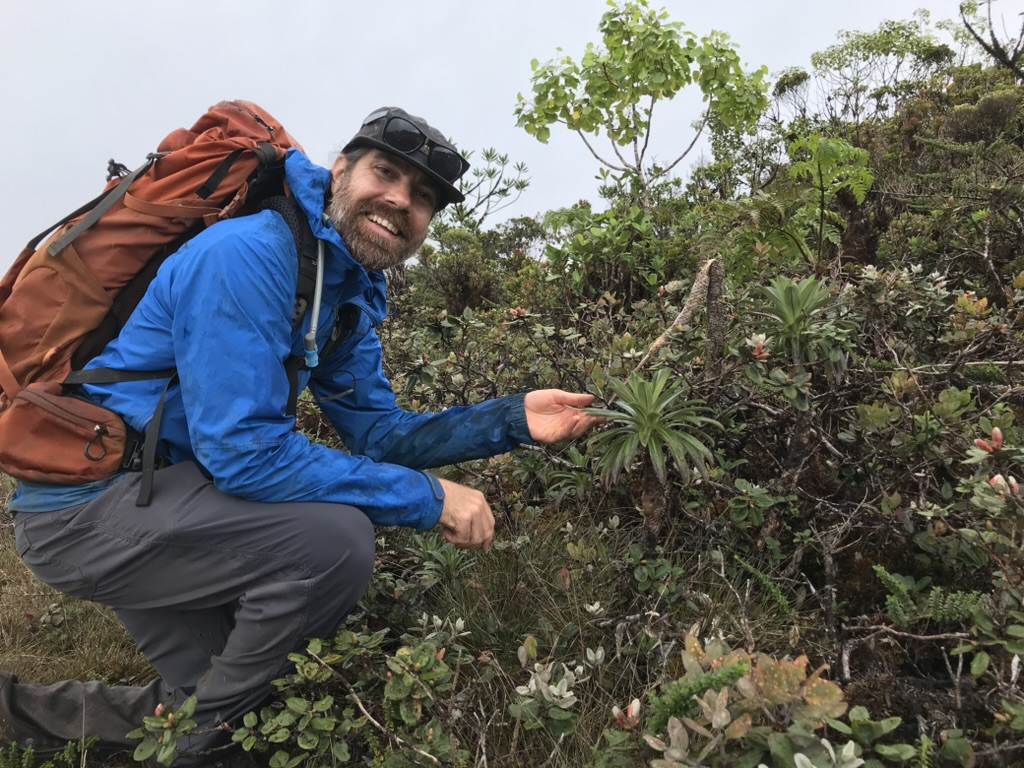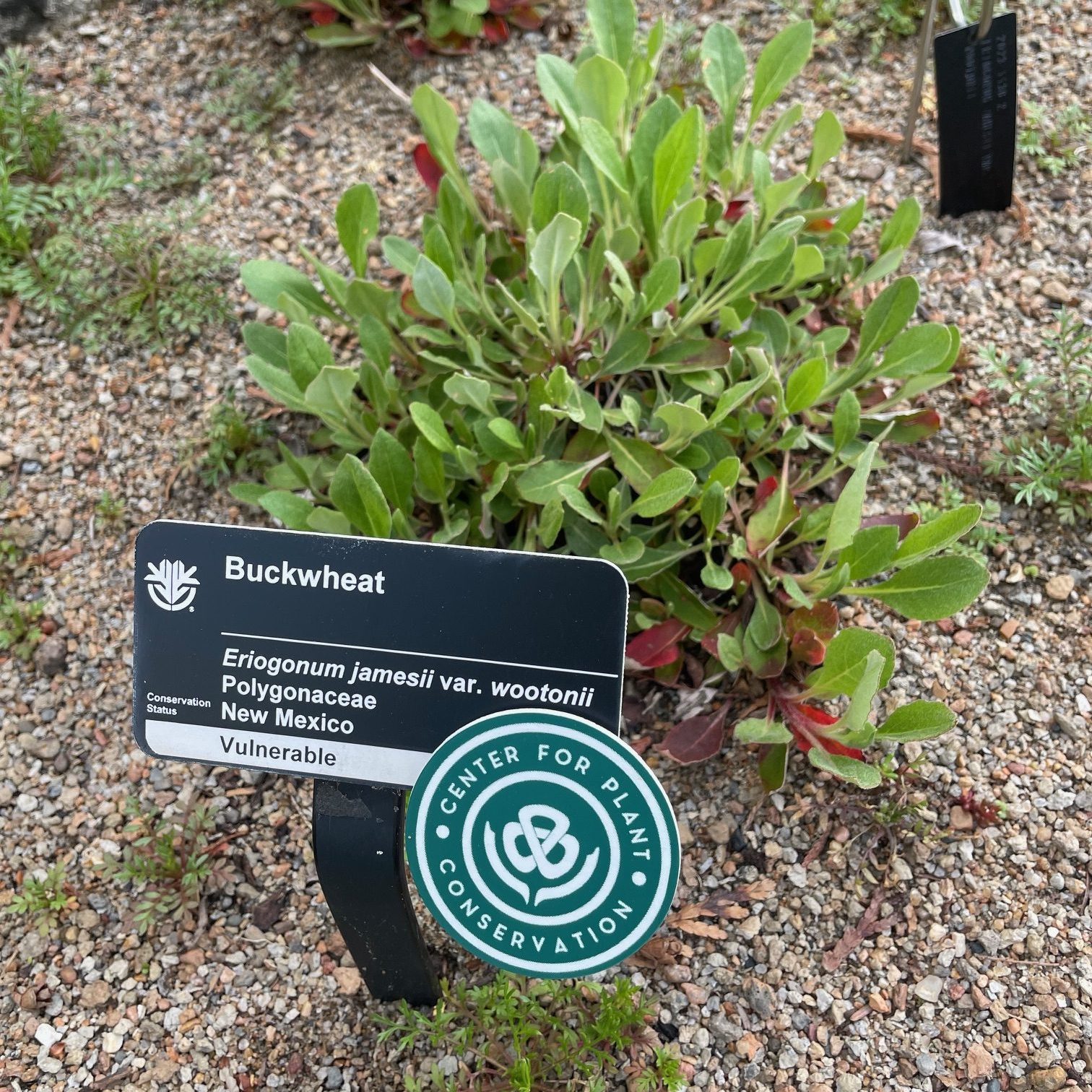SAVE PLANTS
Center for Plant Conservation
CPC’s botanical community is making meaningful strides in our work to save imperiled plants from extinction—demonstrating the power of collective action for maximum impact. This issue of Save Plants highlights how CPC’s collaborative conservation model is driving momentum across the network: from gathering insights that shape our collective priorities, to expanding access to conservation training, to welcoming new leaders and partners into our community.
The results of the 2025 Conservation Partner Survey provide a clear picture of the needs, challenges, and opportunities facing our network and will help guide CPC’s next strategic plan. The completion of CPC’s Applied Plant Conservation Course marks a milestone for plant conservation education, offering 63 hours of free, expert-led training now available to all through the Rare Plant Academy. Finally, we celebrate the addition of new trustees and partner institutions—including our first in Montana—whose expertise and leadership strengthen our community’s capacity and expertise.
Taken together, these milestones highlight the progress we are making in our shared mission: building knowledge, partnerships, and resources to secure a thriving future for rare and endangered plants.
With gratitude,
The CPC National Office Team
Shaping the Future Together: CPC’s 2025 Partner Survey
This spring, CPC invited our network of Conservation Partners to share their perspectives through our first annual Network Partner Survey—and the response was inspiring. The survey was designed to better understand partners’ priorities, challenges, and needs; evaluate the effectiveness of CPC’s current offerings; and identify opportunities for collaboration, improvement, and growth. Nearly 80 participants, representing 50 partner institutions across the United States and beyond, provided valuable feedback on CPC’s resources, membership benefits, and opportunities for future growth. With an 86% completion rate, the survey reflects the deep engagement of our network and the shared commitment to saving plants from extinction.
What We Learned
Partners representing a variety of organizational roles and professional disciplines—from executive directors and conservation department staff to botanists, horticulturists, researchers, and more—shared how they engage with CPC’s web-based resources and conservation programs. Of the resources featured on the Rare Plant Academy, the Best Practices Guidelines and the Applied Plant Conservation Course are among the most used and revisited tools. A strong majority (nearly 90%) reported they are likely or very likely to recommend CPC’s resources to colleagues, underscoring the value of our collective work. Many respondents also highlighted membership benefits like National Meeting discounts, access to specialized databases, and collaborative grant opportunities as critical to advancing their conservation efforts.
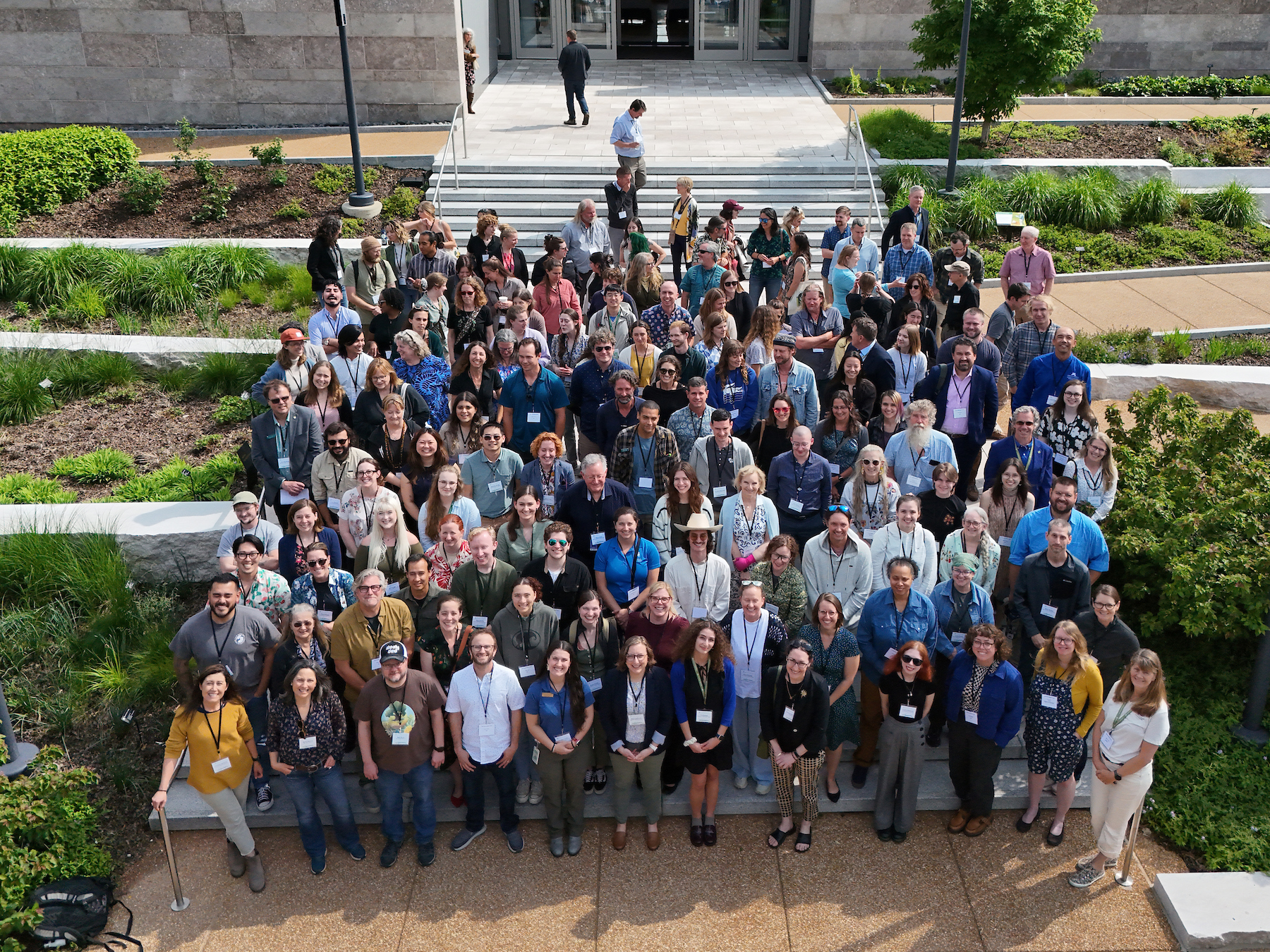
Looking ahead, partners expressed interest in additional content and resources, such as more workshops and webinars, updated Best Practices Guidelines, centralized horticultural protocols, tools to support advocacy, and resources tailored for broader public engagement. Suggestions for improvements included enhancing web functionality, offering more in situ conservation resources, and expanding access to funding and collaboration opportunities.
Next Steps
CPC staff will conduct deeper analysis of these findings to inform improvements to existing offerings and feedback will also be utilized to shape CPC’s formal strategic planning process. The valuable feedback and ideas shared through the survey will play a vital role in shaping future priorities and ensuring CPC continues to serve as a strong, responsive hub for rare plant conservation. The next network-wide survey will launch in Spring 2026, providing another opportunity to measure progress, deepen engagement, and chart our shared path forward.
Expanding Knowledge, Strengthening Conservation: Final Modules Launched for CPC's Applied Plant Conservation Course
At the Center for Plant Conservation (CPC), we believe that sharing knowledge is key to saving plants from extinction. Through the Rare Plant Academy—a free, public resource for members and non-members alike—we advance science-based conservation practices and foster a collaborative community of plant conservationists and advocates.
A cornerstone of this effort is CPC’s Applied Plant Conservation Course (APCC), which offers in-depth training on cutting-edge techniques and proven methods for every stage of rare plant stewardship. Featuring expert-led video lectures and case studies from across the CPC network, the course is built on the foundation of CPC’s Best Plant Conservation Practices to Support Species Survival in the Wild—the most comprehensive guide of its kind.

This July, CPC released the final two modules of the APCC, completing the full suite of lessons:
Module 8: Propagation and Horticulture of Rare Plants
Participants are introduced to the essential principles and practices of propagating rare plants for conservation purposes. Lessons cover record keeping, facilities and equipment, and core methods for working with seeds, cuttings, and specialized propagation techniques. The module also dives into unique challenges and strategies for cultivating species such as orchids, oaks, ferns, alpine plants, and cycads—equipping practitioners with both theoretical knowledge and practical tools to support rare plant survival through horticultural practice.
Module 9: Tools & Partnerships
The final module of the APCC compiles videos and resources highlighting innovative tools and partnerships across the CPC network. Participants are introduced to platforms such as the Rare Plant Academy, CPC’s database tools—including Seed Targeting Modules designed to strengthen collaborative conservation—and other initiatives that extend learning beyond the APCC. Designed to foster continued curiosity and collaboration, this module encourages learners to stay connected with CPC’s community and apply shared resources to advance rare plant conservation.
With the launch of these two new additions, the APCC is now complete and publicly accessible, totaling 63 hours of content across nine modules. To date, more than 1,450 participants are enrolled in the APCC. The course was made possible through collaboration with 18 CPC Conservation Partner institutions and partial funding support from Bureau of Land Management State Offices in California, Colorado, and Nevada. Together, this collective effort has produced a robust, accessible curriculum that strengthens the science and practice of saving plants from extinction.
Enroll in the Applied Plant Conservation Course.
CPC Welcomes New Conservation Partners and Trustees
The heart of the Center for Plant Conservation (CPC) is its vibrant community of conservationists—a dedicated network of individuals and organizations united by a shared mission to save plants from extinction. From practitioners and researchers to trustees, donors, and plant advocates, this community has been the cornerstone of CPC’s achievements for more than four decades, continually growing stronger, more diverse, and more connected.
CPC is delighted to have recently welcomed two new trustees to our Board, whose leadership and expertise will help guide our organization into its next chapter, as well as two esteemed institutions joining our network of Conservation Partners—bringing our total number of partners to 83. The Montana Conservation Seedling Nursery becomes our first partner in the state of Montana, helping to fill an important geographical gap in our collaborative network. The Jacksonville Zoo and Botanical Gardens adds vital expertise and momentum to the Florida Plant Rescue initiative, strengthening rare plant conservation efforts in a state with extraordinary biodiversity. Together, these new additions enrich CPC’s collective work and reinforce our shared commitment to advancing science, collaboration, and innovation in rare plant conservation. Read on to meet the newest additions to our community!
New Conservation Partners

Jacksonville Zoo and Botanical Gardens
Collaborating Partner | Jacksonville, FL
The Jacksonville Zoo and Botanical Gardens (JZG) is committed to its mission of connecting communities with wildlife and wild places through both animal and plant conservation. Since 2015, JZG’s Conservation and Horticulture teams have collaborated with CPC partners such as Atlanta Botanical Garden, Bok Tower Botanical Garden, and others on projects spanning surveys, monitoring, seed collection, and outplanting for several imperiled plant species. With plans underway to establish a seed bank and, eventually, a full conservation infrastructure—including a viability testing lab, propagation nursery, and conservation collections—JZG is building capacity to safeguard imperiled plants and contribute to restoration and education. Through CPC’s Florida Plant Rescue initiative and upcoming expansions to its Wild Florida habitat—2.5 acres of natural wetlands consisting of native animals and plants —JZG aims to increase surveys and ex situ safeguarding, provide rare plant propagules for restoration, and inspire the public by showcasing threatened and endangered species with conservation-centered interpretation.

Montana Conservation Seedling Nursery
Participating Institution | Missoula, MT
Established in 1927 on the DNRC Missoula Campus, the Montana Conservation Seedling Nursery produces seedlings and seed for conservation projects in partnership with the public, government agencies, non-profits, and tribal nations. With a capacity to grow more than one million seedlings annually, the Nursery supports a variety of conservation efforts, including post-fire recovery, erosion control, species diversification, and more. All seedlings are grown from wild-collected or source-identified seed, ensuring genetic integrity and regional adaptation. Seed is sourced exclusively from wild populations and amplified at the nursery for conservation use. The Nursery is also building a robust seed bank of common and rare species found throughout Montana and the Rocky Mountains, safeguarding plant diversity for future conservation efforts. As CPC’s first Conservation Partner in the State of Montana—and the first in the entire Intermountain region—the Nursery is uniquely positioned to expand rare seed collection and advance horticultural protocols that will strengthen plant conservation across this important landscape.
New CPC Trustees
Hilary Schneider | Los Gatos, CA
Hilary has more than 20 years of experience leading consumer technology companies, driving sustainable growth, and fostering strong collaboration and engagement among executive teams. Hilary served most recently as Chief Executive Officer of Shutterfly, a leading e-commerce company for personalized products and custom design. Prior to this role, she served as Chief Executive Officer of Wag!, the country’s largest on-demand mobile dog walking and dog care service, and as President and Chief Executive Officer of LifeLock, the leader in identity theft protection. Previously, she served in a series of executive positions at Yahoo! from 2006 to 2010 and in several senior leadership roles at Knight Ridder from 2002 to 2005. Hilary has a B.A. in economics from Brown University and an MBA from Harvard Business School. She has served on the boards of Vail Resorts since 2010, and water.org since 2011. Additionally, Hilary serves on the boards of Sleep Number and DigitalOcean. Hilary is an outdoors enthusiast and enjoys hiking and biking with her two dogs and traveling with her husband and three sons.
Robert “Bob” Sears | St. Louis. MO
Robert “Bob” Sears is a lifelong resident of St. Louis. He is a graduate of Colorado College, and he earned his law degree from Boston University. After returning to St. Louis, he and his late wife, Erica Leisenring, raised two sons. Before retirement, Bob practiced law focusing on civil litigation and construction-related matters. He continues to be a licensed attorney in Missouri and serves as treasurer of the St. Louis Bar Foundation. Since taking up beekeeping in 1990, Bob has become deeply involved in honeybee health and advocacy. A Master Beekeeper, he has led several beekeeping organizations and serves on national boards and coalitions related to pollinator health. His work bridges beekeeping, conservation, and public policy, and he has contributed to educational programs and publications on best practices. His interest in the Center for Plant Conservation was sparked by the involvement of his late wife, a former CPC board member.
National Collection Spotlight: Stiff Star-hair Fern
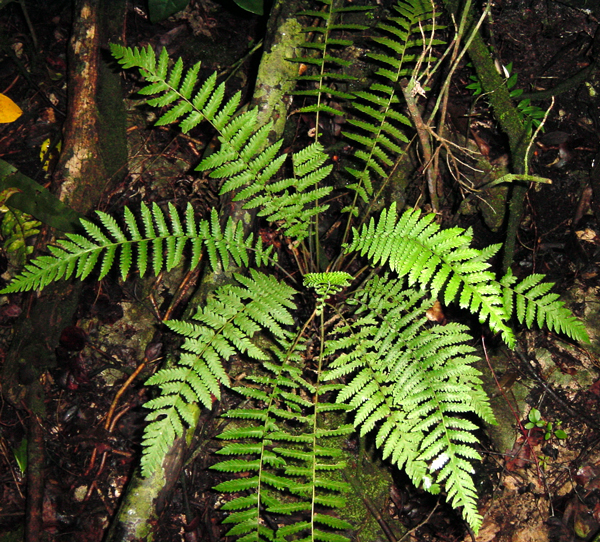
Delicate in appearance but remarkably resilient, the Stiff star-hair fern (Thelypteris sclerophylla) is a terrestrial, perennial fern recognized by its short, erect stem and striking fronds that can reach up to 50 cm in length. True to its name, the fern’s stems, fronds, and petioles are covered in fine forked, or stellate, hairs that give the plant its stiff, papery texture. On the underside of fertile fronds, round sori release dark brown spores that develop into heart-shaped gametophytes—a fascinating glimpse into the fern’s life cycle.
This globally rare species is endemic to the rockland hammocks of Miami-Dade County, Florida, though its range extends across the Greater Antilles, West Indies, and parts of Central and South America. In South Florida, it survives in just two small preserves, with populations numbering fewer than 300 individuals combined. These ferns thrive in humid, shaded hardwood forests, often anchored to limestone outcroppings with a thin layer of soil. Their survival depends on the stable, moist conditions of this ecosystem, making them particularly vulnerable to threats such as canopy loss from hurricanes and competition from invasive plants.
The stiff star-hair fern is currently safeguarded in CPC’s National Collection by Fairchild Tropical Botanic Garden and Center for the Reproduction of Endangered Wildlife at the Cincinnati Zoo and Botanical Garden, where researchers have developed in vitro spore cultivation methods to support its survival. Continued collaboration and innovative propagation work are critical to ensuring that this rare fern, with its unique ecological role in South Florida’s rockland hammocks, is not lost to extinction.
_________________________________________________________________
As Seen on the Rare Plant Academy: 2025 National Meeting Presentations
Each year, CPC’s National Meeting brings together leaders in rare plant conservation to share knowledge, exchange ideas, and inspire collaboration. If you weren’t able to join us in Saint Louis at the Missouri Botanical Garden this past May—or if you’d like to revisit the presentations—you can now watch 2025 National Meeting recordings on the Rare Plant Academy Video Library.
One of the many inspiring presentations was a lightning talk from the Office of Kentucky Nature Preserves (OKNP), Kentucky’s natural heritage and natural areas program. OKNP leads a wide range of in situ and ex situ projects aimed at protecting the state’s botanical diversity.
In this presentation, Tara Littlefield, OKNP’s Plant Conservation and Biological Assessment Manager, highlights recent projects and advances—including the successful transplantation of nearly 1,000 White fringeless orchid (Platanthera integrilabia) plants into high-quality wetland habitat this past April. This marks the first-ever introduction of a rare orchid in Kentucky and a major milestone in strengthening the state’s botanical capacity.
Explore this talk and many more by visiting the RPA Video Library to catch up on all the conservation insights shared at the 2025 National Meeting.
Get Updates
Get the latest news and conservation highlights from the CPC network by signing up for our newsletters.
Sign Up Today!Ways to Help CPC

Conservation Advocacy Initiatives
The U.S. Department of Agriculture has announced a proposed reorganization that includes closing the Henry A. Wallace Beltsville Agricultural Research Center (BARC) in Prince George’s County, Maryland.
BARC is the largest agricultural research center in the nation and its Plant Exchange Office is a long-time collaborator of the Center for Plant Conservation. Its work supports:
- Conservation of crop wild relatives and management of GRIN Taxonomy
- Maryland farmers and national agriculture
- National collections, including fully mature trees planted by the U.S. National Arboretum
- Global agricultural and conservation research
Research on crop wild relatives provides the genetic diversity needed to develop crops that are more resilient to pests, diseases, and climate change—ensuring farmers can adapt to future challenges and consumers continue to have reliable access to nutritious, affordable food.
Closure of BARC would disrupt decades of critical research, jeopardize partnerships, and move essential conservation work away from the stakeholders it serves.
- We encourage CPC stakeholders and colleagues to submit comments in opposition to this closure.
- Feedback may be emailed directly to reorganization@usda.gov.
Your voice can help ensure the continuation of BARC’s vital role in agriculture, conservation, and food security.

Donate to Save Endangered Plants
Plants are the foundation of life on Earth—yet two in five species are at risk of extinction. Together, we can change that.
When you make a charitable gift to the Center for Plant Conservation (CPC), you fuel science-based conservation, safeguard rare species through the National Collection, and empower our botanical community of plant conservationists, researchers, and advocates.
Your support ensures that CPC can continue providing vital resources, training, and research to protect the plants we all depend on. Every gift—large or small—helps ensure a future where plants and people thrive side by side.
Donate today and help save plants from extinction.
The Center For Plant Conservation is a 501 (c) (3) non-profit organization (EIN# 22-2527116). Your gift to the Center for Plant Conservation is 100% tax deductible.
Donate to CPC
Thank you for helping us save plant species facing extinction by making your gift to CPC through our secure donation portal!
Donate Today